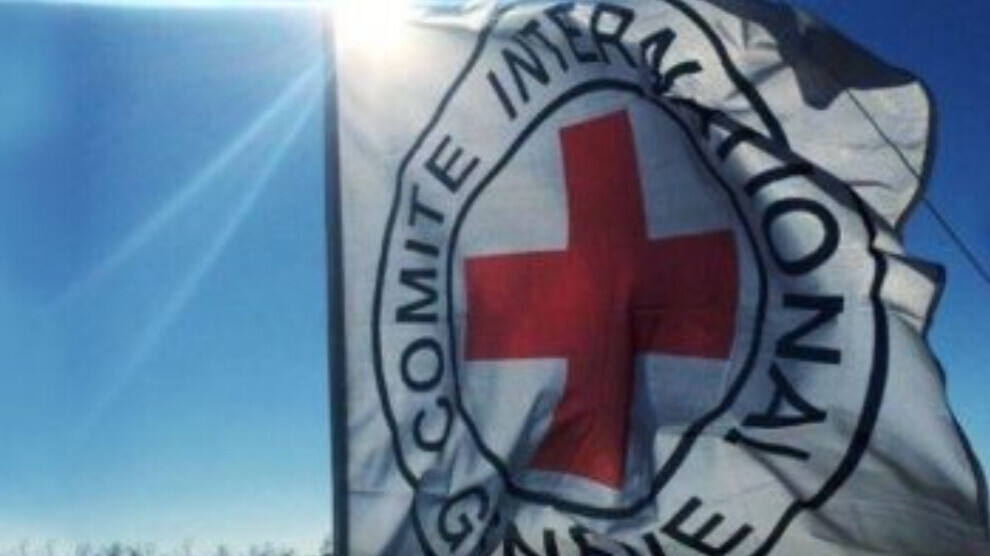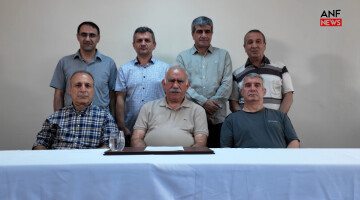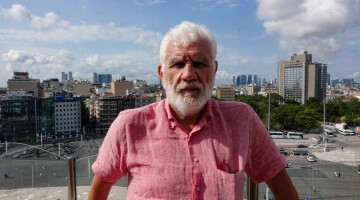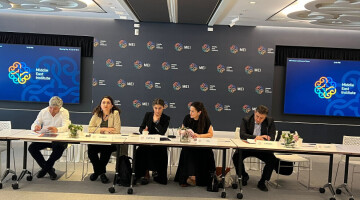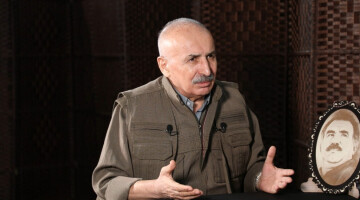The Geneva Conventions deal, among other things, with international rules of warfare and the treatment of civilians and prisoners of war. On January 24, 1995, the PKK officially announced its signing of the Geneva Convention. Captured Turkish state forces are protected, treated humanely, and released as soon as conditions permit, without any consideration. The many prisoners released by the PKK are witnesses to this practice. As a result, the Turkish military has been able to convince virtually no one that the captured soldiers, police officers, and MIT agents it killed in Gare were murdered by the PKK. The People's Defense Forces (HPG), the Kurdistan Communities Union (KCK) and the Central Command of the People's Defense (HSM) have published all the details. KCK Executive Council member Zübeyir Aydar also invited independent international institutions to investigate the events.
Attack on prison camp in Gare constitutes massive breach of Geneva Convention
The Geneva Conventions, ratified against the backdrop of Nazi Germany's crimes in 1949, lay down basic rules of warfare. They prohibit attacks on civilian populations and make it obligatory to separate civilian and military targets. Impartial institutions should not be prevented from providing aid to the civilian population, and captured enemy combatants or soldiers should not be allowed to be killed. The conventions entrust the International Red Cross with the task of monitoring what is happening in the war zone. In this context, the Red Cross has the authority to investigate what is going on in war zones or zones of occupation, to meet with captured combatants or soldiers, and to prepare for their release.
The Turkish state, which has repeatedly violated the Geneva Conventions since the 1990s under the cover of "fighting terrorism," has not hesitated to violate them again in its attack on the Gare region, subjecting the Gare detention center to days of heavy bombardment. Instead of informing and questioning international institutions and organizations responsible for this issue on the basis of conventions, the Turkish army killed its own captive personnel. These personnel were on Iraqi soil under the protection of international law.
1995: PKK signs Geneva Convention
The PKK, which pledged to abide by the agreement by signing it, announced the decision at a press conference in Geneva on January 24, 1995. Here, a statement was delivered on behalf of Abdullah Ocalan, then the PKK's secretary general. The statement read:
"In our homeland, Kurdistan, a war of extermination is being waged before the eyes of the world. Since its foundation, the Republic of Turkey has denied the existence of our people through systematic state policies. The Turkish state bans the culture, language and identity of the Kurdish people and mobilizes all its military means and forces to wage a war of annihilation.
The PKK, which honors the universal values of humanity, is fighting for the national and democratic rights of its people. The war is the result of the Turkish state's policy. In this dirty and bloody adventure, Turkey has declared the Kurdish people as the primary legitimate military target.
The Turkish state disregards the convention
The Turkish state has driven the people out of Kurdistan: 3,000 villages have been destroyed and millions have been displaced. Unable to defeat the guerrilla army, the Turkish state is taking revenge on the civilian population with unprecedented violence. 15,000 members of our party are in jails right now awaiting the threat of the death penalty.
Turkey also ignores the international conventions it has signed and prevents the press, the OSCE, and international human rights monitors from visiting Kurdistan and monitoring the situation itself. The state also refused humanitarian requests from the International Committee of the Red Cross (ICRC) to visit Kurdistan. Although Turkey signed the Geneva Convention on August 12, 1949, it has never complied with it and refused to sign the first protocol in 1977.
Turkey insists on the dirty war
The ten-year war has cost the lives of 34,000 people. The war was never the choice of our party. It was forced upon our people. We state categorically: we want this war to end, and we stand for a democratic, equal and just solution. This demand was proven by the 83-day unilateral ceasefire in 1993. However, Turkey continues to insist on the dirty war.
The PKK has appealed to the ICRC
We will continue to fight until we force Turkey to seek a political solution. We call on Turkey to respect international law and stop its attacks on civilians. PKK, as a party to this conflict, has always abided by the conventions. The relevant request was made on behalf of PKK Secretary General Abdullah Öcalan to the International Committee of the Red Cross and other relevant bodies on January 23, 1995."
PKK carries out the following obligations resulting from the Geneva Conventions
In its statement, the PKK points to the following obligations stemming from the Geneva Conventions: "In the war with the forces of the Turkish state, the PKK assumes responsibility for complying with the Geneva Conventions of 1949 and the First Protocol of 1977 on the Conduct of Conflicts and the Protection of Victims of War, and for the legal implementation of these obligations within its own forces and areas under its control."
Legitimate Targets of Attack
As a second point, the PKK defines legitimate targets of attack: "For the avoidance of doubt, the PKK considers the following groups to be part of the Turkish security forces and thus legitimate targets of attack.
a - Members of the Turkish armed forces,
b - members of the Turkish counter-terrorist forces,
c - members of the Turkish intelligence service (MIT),
d - members of the Turkish gendarmerie (military police)
e - village guards
The PKK does not consider civil servants to be members of the security forces unless they fall into one of the above categories.
Treatment of prisoners of war
Regarding the treatment of prisoners of war, the PKK's declaration of commitment said, "The PKK will treat captured members of the Turkish security forces as prisoners of war.
The PKK will publicize this declaration and the rules of the 1949 Geneva Convention and the 1977 First Protocol in its armed forces and will ask the ICRC for help. It has established a disciplinary system to ensure that these rules are observed and those who violate them are punished. It accepts the principle of command responsibility [superior responsibility]."
Appeal to international community
Addressing the international community, the PKK wrote: "The PKK will accept the ICRC's control function. The PKK calls on the Turkish government to make the same commitments and also accept the ICRC's control function.
In conclusion, the PKK appeals to the signatory states of the Geneva Convention, the UN, the OSCE, the Council of Europe and the ICRC to ensure an end to the war or at least to take the necessary steps to guarantee that the Turkish state and the PKK comply with their obligations under international law."
RELATED NEWS:

